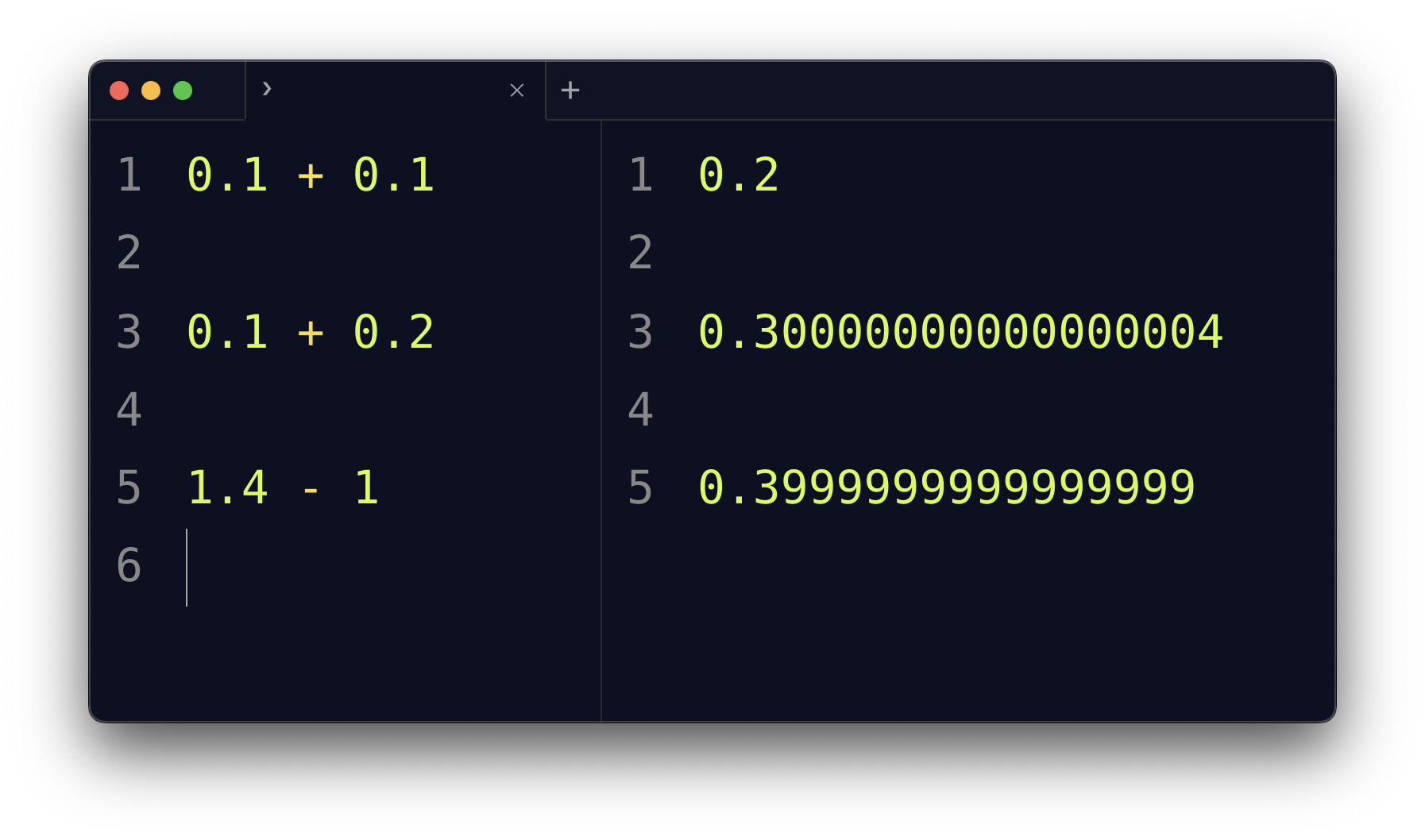How to fix decimals arithmetic in JavaScript
New Courses Coming Soon
Join the waiting lists
Find out how to fix decimals arithmetic in JavaScript
If you try to do the sum of two decimal numbers in JavaScript you might have a surprise.
0.1 + 0.1 is, as you expect, 0.2
But sometimes you have some unexpected result.
Like for 0.1 + 0.2.
The result is not 0.3 as you’d expect, but it’s 0.30000000000000004.
Or 1.4 - 1, the result is 0.3999999999999999

I’m sure your question is: WHY?
First, this is not unique to JavaScript. It’s the same for every programming language.
The reason is due to the fact computers store data as binary, 0 or 1.
Any value is represented in the binary numeric system, as a power of two.
1 is 1 * 2^0
10 is 1 * 2^1 + 0 * 2^0
Not every decimal number can be represented perfectly in this binary format, because some numbers are repeating numbers in binary. Try to convert 0.1 from decimal to binary.
Long story short, we’d need infinite precision to represent 0.1, and while computers can approximate that well, when we do calculations we lose some data since we need to “cut” somewhere, and this leads to those unexpected results you see above.
You can use libraries like decimal.js, bignumber.js or big.js.
You can also use a “trick” like this.
You decide to cut decimals after 2 positions, for example, and multiply the number by 100 to remove the decimal part.
Then you divide by 100 after you’ve done the sum:
0.1 + 0.2 //0.30000000000000004
(0.1.toFixed(2) * 100 + 0.2.toFixed(2) * 100) / 100 //0.3
Use 10000 instead of 100 to keep 4 decimal positions.
More abstracted:
const sum = (a, b, positions) => {
const factor = Math.pow(10, positions)
return (a.toFixed(positions) * factor + b.toFixed(positions) * factor) / factor
}
sum(0.1, 0.2, 4) //0.3
Here is how can I help you:
- COURSES where I teach everything I know
- CODING BOOTCAMP cohort course - next edition in 2025
- BOOKS 16 coding ebooks you can download for free on JS Python C PHP and lots more
- Follow me on X